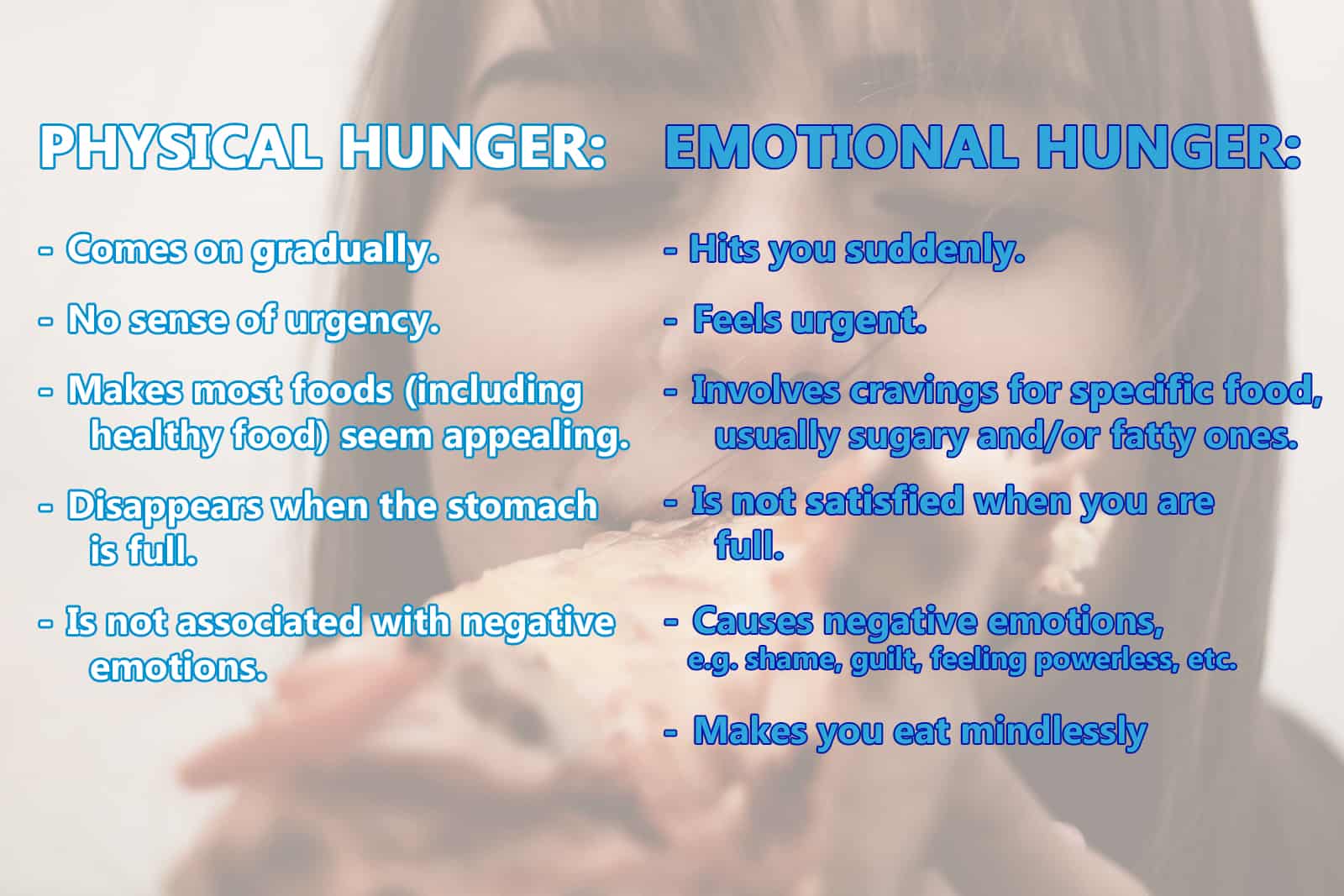Who doesn’t like eating big every once in a while? What’s wrong with indulging in something sweet or unhealthy from time to time? From being children, we learn that food can be a reward or a comfort. A lot of people, including yours truly, get moody when we’re hungry and cheer up once we’ve eaten. Many of us seem to have this built-in connection between our emotions and food. But is emotional eating always a good thing?
Well, no. As with many things in life, there is a spectrum between the mild and the extreme and some people find themselves at the wrong end of it – dealing with emotional problems by eating. Emotional overeating or stress eating can then lead to weight problems and low self-esteem, causing a vicious cycle of negative emotions and bingeing. Let’s take a look at the problem.
What is emotional eating?
Emotional eating is, as its name suggests, eating to suppress emotion. This is a habit that can be a precursor to more serious eating disorders, such as binge eating disorder. If you are an emotional eater, you:
- Eat more when stressed.
- Eat when not hungry or when full.
- Eat to feel better or soothe sadness/anger/boredom/anxiety/etc.
- Use food as a reward for yourself.
- Regularly eat till you are stuffed.
- Feel that food is like a friend, or that it makes you feel safe.
- Feel out of control or powerless when food is involved.
How do you know if you’re an emotional eater?
Everyone gets hungry. Everyone needs to eat. Some people get hungry more than others. But the million-dollar question is: how do you know that your hunger is driven by emotion rather than by a physical need for food?
Here are the differences between emotional hunger and physical hunger:

Why does it happen?
Emotional eating is actually fairly normal to an extent. Most people feel more content after eating and it is common to use a snack as a pick-me-up. Similarly, most of us would find it normal to treat ourselves to a meal out with friends or family to celebrate success, or order a takeaway to unwind after a particularly stressful week.
This behaviour may be something we develop from being very young. Babies cry when hungry and are calmed when they are fed. This makes food a powerful symbol of comfort that stays with us. As we get older, our parents may reward our good behaviour by taking us out to eat or treat us to something sweet when we’re not feeling well.

While all of this is completely normal, it can become problematic if your natural response to stress or problems in your life is to reach for food, especially the types of comfort food an emotional eater typically goes for, i.e. sugary or fatty junk food.
While past habits, associations between food and comfort, and nostalgia can all lay the groundwork for emotional overeating, it is often triggered by strong emotions, such as anxiety, anger, sadness, or emptiness. Stress is a powerful factor. Emotional eaters tend to try and stuff these emotions down by eating more than they need.
There can also be social factors. Many people experience nervousness in social situations and may over-indulge to try and fit in with the group or simply to quash their nerves.
Common triggers for emotional overeating include:
- Relationship problems
- Stress at work
- Fatigue
- Financial problems
- Health problems

How to stop emotional eating
Emotional eating comes with its fair share of problems. Aside from the feelings of guilt and helplessness, stuffing your emotions down with junk food and continuing to eat after the stomach is full can take its toll on your physical health. Unwanted weight gain is common; full-blown obesity can follow. So, what can you do about it?
There are a number of approaches. One strategy is to identify the emotions that cause you to overeat and learn to express and manage these emotions in a different way.
Where are these emotions coming from? It is easy to simply say “I’m out of control” or “I’m greedy”, but thoughts like this are unhelpful and often make you feel worse. Try and identify the trigger and don’t be afraid to say it out loud. You could break it down into:
“I’m eating because…” + “I’m feeling…” + “because…”
For example:
- I’m eating because I’m upset with my friend because they forgot my birthday.
- I’m eating because I’m stressed with work and worried I will not be able to complete my objectives.
- I’m eating because I’m angry with my partner because they don’t do enough around the house.
- I’m eating because I’m frustrated with myself for forgetting to do my homework.
Keeping a food diary can also help you to see patterns between mood and food. Write down what you eat each day and how you feel when you decide to eat.

Once you have identified your trigger, the next step is to find a different way to express your emotions without turning to food. This is easier said than done, especially if another person is the source of the problem. For example, giving your boss an earful about how stressed you are is probably not the best idea. However, if it is possible to talk to a friend or a family member, that is often a good start. Other ways to express your emotions include:
- Writing down what you are feeling.
- Allowing yourself to cry.
- Engaging in exercise to channel your feelings into physical activity.
- Distracting yourself with another enjoyable activity (that isn’t physically or emotionally harmful).
If after trying these measures you still find yourself emotionally eating, you can seek help from a psychologist, psychiatrist, or therapist who is professionally trained to help you to deal with your feelings in a healthy way. There is always help out there for those of us that need it. The first step is admitting that our emotional eating is a problem.
https://www.helpguide.org/articles/diets/emotional-eating.htm
https://www.beateatingdisorders.org.uk/types/emotional-overeating
https://www.mayoclinic.org/healthy-lifestyle/weight-loss/in-depth/weight-loss/art-20047342
https://www.ncbi.nlm.nih.gov/pmc/articles/PMC5426417/
https://www.ncbi.nlm.nih.gov/pmc/articles/PMC5918520/









Join the discussion